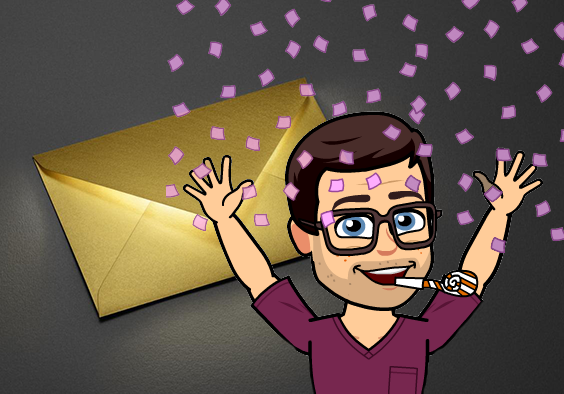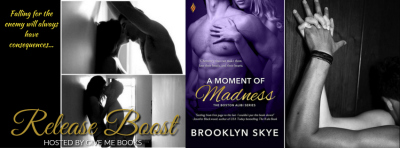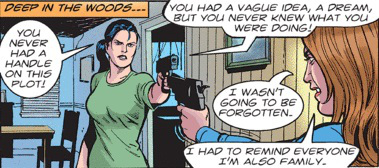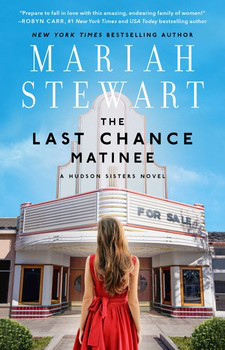 An Interview with Victoria Chang
An Interview with Victoria ChangBy Carlos Kelly
The character of the boss was probably the first thing that emerged when I started writing—it literally was the first phrase, “The Boss” that came into my head. Everything else, I think, came later.
I think that writing this book was an exercise initially, in expulsion—the idea of writing out of negative experiences, the idea of writing what has been hidden inside of us for a very long time, so to answer your question, most certainly pain! I have written out of love, especially related to my children, but it seems to get mixed in with pain eventually. I suppose when I think about it, for me at least, one is always mixed in with the other—they never exist independently. Maybe I’m just too negative!
I think I heard chanting in my own head while I was writing these poems and a sense of danger and urgency so it doesn’t surprise me that many people have associated the poems with spoken word. And yes, I also recognized that no punctuation and repetition would be challenging for the reader, but when I’m writing, I don’t think of the reader consciously. To be clear, though, I’m not writing diary entries either, so the reader is always somewhere—I just don’t always consciously acknowledge him/her.
I know nothing else. Sometimes, truthfully, especially in the past, I wish it weren’t such a large part of my experience—it is ALL of my experience, every single day. I think that having experienced the things that I have experienced, all the racism, all the differences of having been raised so unlike Americans who are not immigrant’s children, can wear on you. At some point, you either have to embrace it or die. I chose to embrace it and write about my experiences, whether people cared or not, whether the greater literary community valued those experiences or not because I had no other experiences. I decided that I would stop trying to be anything but what I was. There’s a lot of shame to be a person of color in this country, a lot of exclusion and micro-aggressions that still happen to me on a daily basis. People think I’m different or weird or…well, maybe they’re different and weird and there’s just more of them so they can band together whereas I can’t or haven’t been able to in the past.
By speaking up, by writing, by not standing by as bystanders. By challenging others to see us, to really recognize us, everyone, as people who might have different experiences as theirs, but those experiences are equally valid. And to challenge others to see how their own daily micro-aggressions and assumptions impact those around them. My new book, Barbie Chang, published by Copper Canyon Press, that is coming out this fall, really addresses some of these issues that I’m talking about.
I think everyone should write about what they want. I have friends who are people of color who write about trees and flowers that aren’t metaphors for race or divisiveness, but about the more conventional things like deaths, beauty, love, etc. That’s fine—that’s their prerogative. No one should demonize them for doing so. And likewise, no one should pigeon hole a writer who does write about race or divisiveness so that they can write about different things in the future too. Writing is about possibilities, not about restriction.
I write very much out of urgency, an itch, a nagging itch and I usually wait until that itch is so extreme that I want to tear my own skin out because it is so itchy—and the waiting has usually been due to the lack of time, but I have become accustomed to writing this way. I write rapidly and in short bursts and then I put them away and edit after time has passed so I can see the writing differently and not be “me” anymore. Then I don’t write poems for years and work on different genres or projects until that itch for something else returns. I also don’t put pressure on myself to write poems or to publish books. If I write another poem, that’s fine. If I publish another book, that’s fine. If I don’t, that’s fine too. I always say, the world certainly doesn’t need another book of poetry to be published, especially not a mediocre one!
I don’t title these days—I just use the first few words of the first line. It’s a great way to cheat, really, and I tell people who have difficulty titling to do the same thing. Or another thing is to just pick a word from the poem that has possibilities and feels like an open door, and title your poem that. The worst thing one can do is to title the poem what the poem is ostensibly “about”—readers want mystery and are smarter than that.
The Boss was written in a period of two months, in a car, while waiting for my kid to finish a language class. I then edited it and added maybe 10 more poems and spent the next year working on it, but in essence, it didn’t change much. That’s basically how my new book, Barbie Chang, was written too, but I also pulled some material from a prior collection that I never published. My earlier books, Circle and Salvinia Molesta, those took forever because I really lacked confidence and voice and had no idea what I was doing so I was learning and learning took me a while.
And yes, the title was always the same, The Boss. I never desired to title it anything different. Or I should say, the poems never seemed like they desired another title.
Yes, always without punctuation and always with a lot of repetition, a sort of going forward and circling back, a sort of obsession and repetitiveness which my life felt like. I’ve always loved poets like Brigit Pegeen Kelly and Shane McCrae who work a lot with repetition. I think I just wrote the way the poems seemed like they wanted to be written. I didn’t have any pre-conceived notions and yes, in my new book, still no punctuation and a little bit of repetition, but perhaps more thinky and philosophical and less urgent.
My whole life—that is what I have always heard and it makes sense—these people left their own countries to come here. My parents were also the top of their classes in Taiwan and went to Taiwan National University which is like the Harvard of Taiwan, so that didn’t help my case! I had no choice but to excel. Excel or be demeaned, excel or be humiliated, excel or feel unworthy, excel or basically be a failure and a loser, excel because they sacrificed everything for us. It was a lot of pressure and in some ways a gift because I was pushed to the limit, always. But, it has taken my whole life to figure out how to function, truly function, in a society that doesn’t always function that way and interact and co-exist with most people who did not grow up that way. And in this way, I find my life to be incredibly lonely and isolating. Because while there are a lot of us, there are usually none of us in the communities that we live in after college, for example. And I always feel like a foreigner and disconnected from the many local communities that I live and socialize in. It’s a lot of acting, you know, especially if you have children who force you to spend time with other parents who have no clue how you were raised and can’t relate to you in ways they don’t even know or understand. I will say, when my mom passed a few years ago, that was traumatizing on the one hand, but suddenly, I felt more free.
I never left until last year when I “retired” from my day job and again, I think it had a lot to do with my mom’s passing. I just decided that I wanted to do other things after having worked in various forms of business for 20 years. It was time to focus more on my own writing and my own projects versus jamming them in at night or wedging them into tiny time slots like while I was waiting in a car. But I’m glad I did all that because it’s made me a wider and more expansive person, I think, and writer, I hope. And I was able to support myself and help support our family, which I think is important, at least that’s what I was told, as an immigrant’s child!
Advertisements Share this:- More





